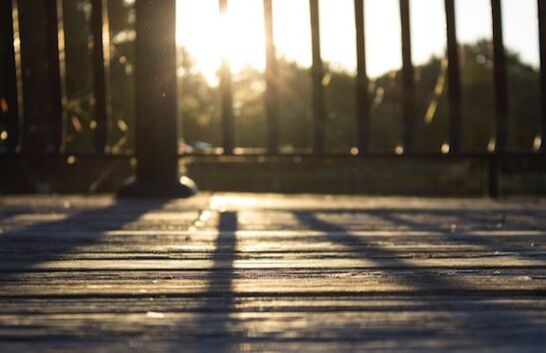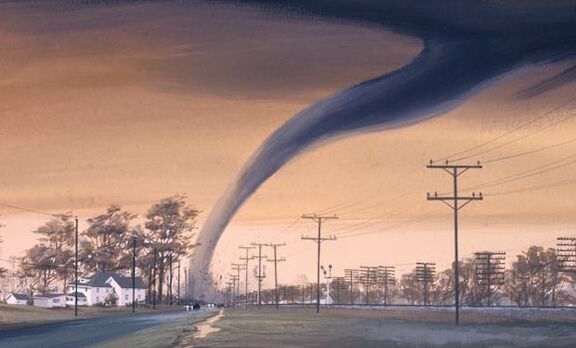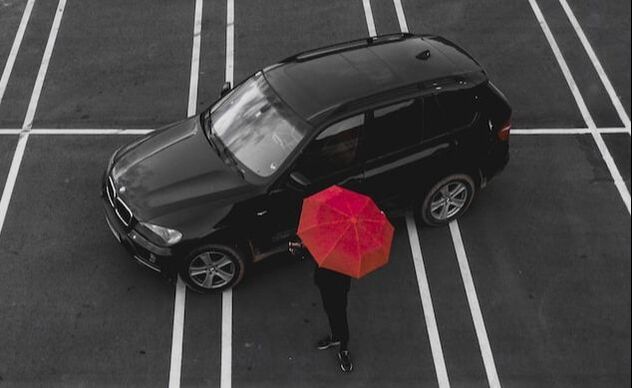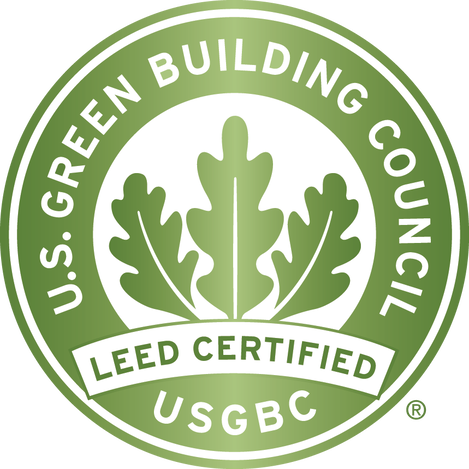|
As the 2024 Summer Olympic Games get underway, millions will be actively watching the events and purchasing Olympic swag.
Unfortunately, too many will become the victims of online scams run by unscrupulous deceivers. They set up very sharp and slick-looking e-commerce sites with the sole purpose of absconding with your money or even your identity. According to Gen Digital's Threat Labs, scam attacks increased over 280% during the last summer Olympics and 238% during the last winter games. Even if you and your family members take precautions vetting these sites to prevent falling for these fakes, you might consider investing in the following types of insurance coverage: Hardly a day goes by that I don't hear comments bemoaning the rise of homeowners insurance - or worse - the receipt of a non-renewal notice from an insurance company.
Why are these actions happening and affecting even those who haven't filed a claim on their homeowners insurance? Recent reports shed a spotlight on the data found, including these 4 eye-opening facts that help answer that question: Even though meteorologists' technology resources allow us to anticipate some upcoming severe weather events, others can crop up with little warning.
Since these events can leave behind significant damage and disruption, policyholders should be prepared well ahead of time for such occurrences to ensure your safety and protect your property. Here are 5 key tips to help you stay prepared for a potential claim from a weather-related event: As insurance rates have climbed over the past several years, it has insureds hard pruning coverages to offset those increases.
It's understandable why they're doing that, but it's like gambling with their money. Many become significantly under-insured when they do that and take on huge financial risk. It takes just one event to financially destroy them, as the following examples illustrate: Filing a homeowners insurance claim is a necessary step when disaster strikes, but many homeowners are concerned about the potential impact of a claim on their insurance rates.
Does your insurance premium go up after filing a claim? Here's the answer, along with some clarification: Going on vacation is an exciting time to get away and make memories with family or friends. While you're busy planning activities and making travel arrangements, it's easy to not think about potential issues that could occur at home while you're gone.
One of the most devastating events is water damage. Imagine walking into your home only to be met with: several inches of water wetting your feet, or seeing a section of the ceiling hanging down and dripping water Not exactly the welcome home you were expecting. It's natural to think "it won't happen to me" and not take precautions to protect your house from a water catastrophe. But there are a few small actions you can take before you leave to minimize the risk of having to deal with a major headache when you get home. Here are 3: Trying To Reduce Your Homeowners Insurance Premiums? Consider These Lesser Known Possibilities6/13/2024
Homeowners are typically aware of bundling polices and increasing deductibles to lower their insurance premiums.
But, there are other ways that might offer the same reduction. Here are 3: When homeowners notice roof issues that look like their roof has been damaged, their initial reaction is to contact their insurance company to file a claim.
BUT, this can be a big mistake on their part. Here are 3 reasons to contact an experienced insurance agent who can guide you about getting an reputable roofing expert BEFORE filing an insurance claim: More and more people are turning to self-storage facilities to store all sorts of personal property, especially when moving. Do you know what insurance you need to protect your property while there?
There are a few options to properly insure your stored goods: Golf carts have seen a rise in popularity for driving on neighborhood streets.
If you're considering the practicality of using a golf cart for this type of family transportation, you need to be very clear about local laws and insurance essentials. We're well into severe storm season and have already seen some storms cause damage in our area. Before the next storm blows through, there are things you can do quickly beforehand to minimize weather-related damage and prevent an insurance claim.
In addition to tips I've mentioned before, here are 3 more tasks you can do now: Whether you're moving across town or to a new state, one of the biggest decisions you'll need to make is how to transport your belongings.
The method you choose - hiring professional movers, renting a truck yourself, or using your own vehicle - can have a major impact on what insurance coverage you'll need. Here's a quick rundown: As insurers are tightening their criteria of their client portfolio due to the industry's hard market, the occurrences of cancellations and non-renewals are on the uptick.
It's especially important in this climate that you understand the difference between these two actions, reasons insurers take them, and how to avoid being the recipient of either of them. As with other industries, the insurance market is cyclical, and we're currently in what's called a "hard market."
A hard market is when political, societal, climate, and other factors cause insurers' profits to fall. Over the past several years, the impact of these factors have combined to a point where insurers have experienced greater losses and have had to make adjustments to maintain profitability. Insurers have become more conservative in what they are underwriting causing their portfolios to shrink and clients' premiums to rise. Historically, hard markets haven't lasted as long as "soft markets," which is when market conditions are just the opposite. In soft markets, insurers' revenue reserves are higher and they are able to be less strict in the risk they underwrite. This allows them to increase their client portfolios, there is more competition among companies, and premiums are very stable over time. SO, what can you do while we're in a hard market to soften its impact? Have you noticed the severe thunderstorms including hundreds of lightning strikes that have swept across large swaths of our country over the past several weeks?
Lightning is among the most prevalent natural hazards capable of inflicting damage upon residential properties. It's important to understand what aspects of lightning-related harm are covered by your homeowners insurance policy, what falls outside its scope, and the necessary steps to take should your home sustain a direct strike. In my last post, I highlighted the advantages of bundling your home and auto insurance policies. However, it's essential to recognize that bundling isn't always the best approach.
There are certain scenarios where keeping your home and auto insurance policies separate may prove more beneficial. Here are a few of these situations: Bundling your auto and home insurance policies with the same insurer can offer a range of advantages. Here are five compelling reasons to consider this approach:
March Madness is a captivating event as millions of college basketball fans across the country analyze the teams and create their own (hopefully winning) brackets.
As we all watch the games and cheer for our favorite teams, we can also learn valuable lessons about selecting homeowners and auto insurance. Here are 3 important takeaways from March Madness that can help you choose the right homeowners insurance coverage. Spring cleaning is a great way to freshen up your home after a long winter and get ready for the warmer months ahead. But have you thought about spring cleaning also helping to prevent homeowners insurance claims?
Here are 5 tips to help you keep your home safe and avoid insurance claims this spring: In the past, homeowners who rented out their properties once a year for local events often relied on their standard homeowners insurance.
But with the surge in short-term vacation rentals, insurance policies have also evolved, prompting the need for a closer look at coverage options, including these 5 areas: With tornado season already underway in the South, it's important to recognize what most standard homeowner's insurance policies provide for "all-perils" coverage.
This insurance coverage includes protection against tornado damage, but understand that there may be potential exclusions or limitations within your policy that can greatly impact your coverage. For example: Check this out: a recent survey revealed that a staggering 65% of Americans are in the dark about the full extent of their home insurance coverage.
Even more surprising, 45% have faced the harsh reality of having their insurance claim denied due to insufficient coverage. That's why it's crucial to engage in regular conversations with your local independent insurance agent. This ensures that you not only recall your existing coverage but also assess whether any adjustments are needed. To guide your discussion, ask these 8 essential questions: Homeowners insurance is a critical and required piece of home purchases if you're securing a mortgage loan.
A number insurance documents must be presented at the closing so it's important that you notify your insurance agent as soon as you have a contract. These include: Umbrella insurance serves as an added layer of protection, going beyond the confines of your existing insurance plans.
It acts as a safeguard against significant financial setbacks in situations where you may be deemed liable for damages or injuries to others including: bodily injury, property damage, personal liability, and advertising injury. Consider the following scenarios: "Green" discounts - perks on your homeowner's insurance for embracing energy efficiency and eco-friendliness - are becoming more popular among homeowners.
Along with familiar green discounts like solar panel and smart home technology, here are 3 additional possibilities you may not have thought about: |
AuthorDennis Lam Archives
July 2024
Categories
All
|

























 RSS Feed
RSS Feed
